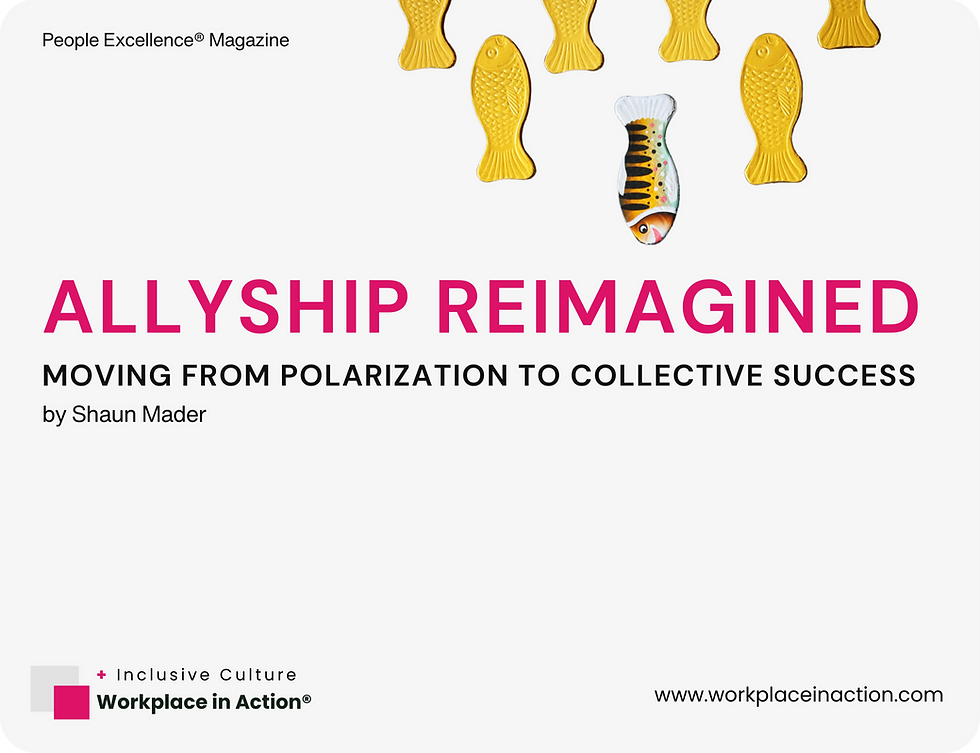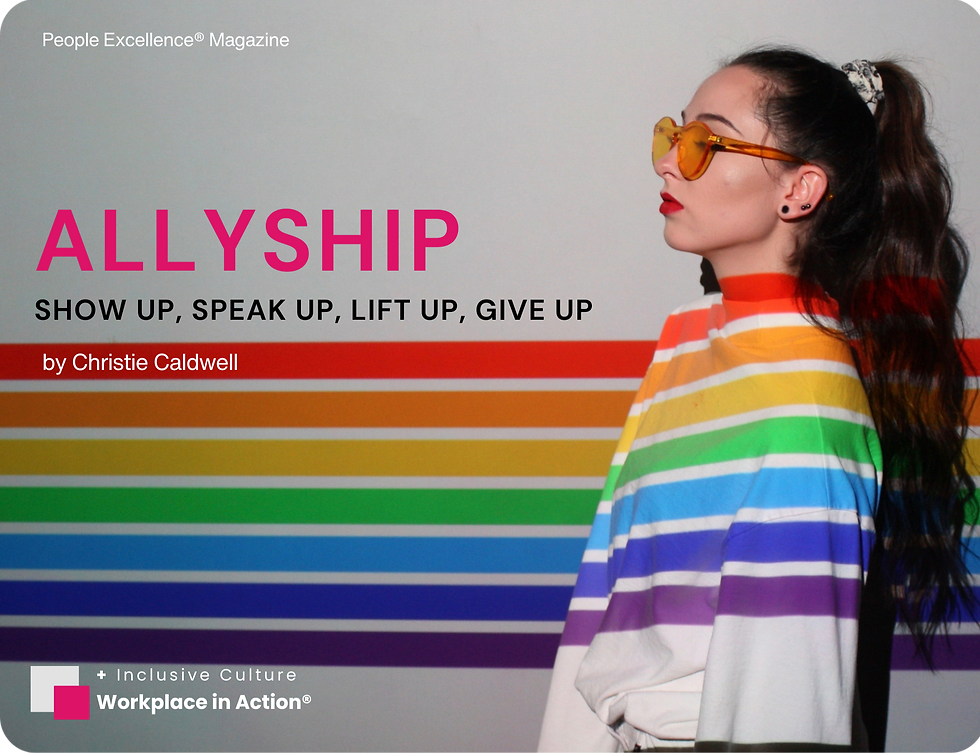Allyship Reimagined: Moving from Polarization to Collective Success
- May 29, 2025
- 4 min read
Updated: Aug 18, 2025

A Personal Journey Between Worlds
As a tall white man who jokes about looking like "the poster child for white privilege," I find myself in an unconventional position when discussing allyship. My understanding of this complex topic was forged through personal experience beginning in my youth. I was given the privilege of attending a Jesuit all-male college prep school located in the inner city of Milwaukee, Wisconsin – a city rated among the worst for Black males in the United States. My experience, though rooted in an American context, reveals dynamics that resonate across cultural boundaries.
True to Jesuit principles, service work formed a fundamental component of our education. From ages 14 to 18, we worked in inner-city schools, tutoring children from highly disadvantaged backgrounds. Simultaneously, I received a literary education featuring works from Toni Morrison, Richard Wright, and James Baldwin at an age when most of my suburban peers were not exposed to such perspectives.
This experience created a stark contrast to my life in the lily-white suburbs, where well-intentioned parents raised their children deliberately "free from the influence of the city.
I had the privilege of that prep school education but worked as a busboy at the local country club – often serving families of my classmates. I straddled the lines of class while having this very unconventional adolescence.
The experience jarred me. I recognised the injustice of a system where deals are made on golf courses, where secret handshakes and inside referrals bypass people without such access. I could see both my potential to exploit those advantages and what it was like to not fully belong to that club.
Speaking Past Each Other
When the long-running injustices of race in the United States reached their tipping point with George Floyd in 2020, conversations about allyship intensified globally. The American experience became a catalyst for worldwide examination of privilege, equity, and inclusion.
What I've observed is that groups are speaking past each other. They voice their perspectives, but these aren't heard or understood by the other side. This is precisely what happens when people feel hurt or wounded, just as in our personal relationships. We become defensive, resentful, and indignant. We're consumed by our own pain and unable to see the pain of others.
For the first time, I witnessed my white male colleagues' pain at feeling ostracised for their colour and gender.
This experience was so unfamiliar that they expressed resentment at being labelled "fragile," while exhibiting the exact kind of fragility in reaction to pain that others have endured for generations.
Beyond Virtue Signalling & Zero-Sum Thinking
The urgency that surfaced during the George Floyd protests left many grasping for immediate answers to deeply rooted problems. While showing moral support for marginalised groups was important, the lack of concrete actions often led to superficial demonstrations that devolved into mere virtue signalling.
This environment proved particularly ripe for politicisation. A pervasive zero-sum mentality framed progress as a competition where one group's gain must come at another's expense. When equality is perceived as a finite resource, efforts toward equity are misinterpreted as taking opportunities away from historically advantaged groups. This creates fertile ground for resentment and political scapegoating.
The reality contradicts this divisive narrative. Research consistently demonstrates that inclusive environments benefit everyone. Organisations with diverse perspectives outperform their homogeneous counterparts across nearly every metric. When talented individuals who were previously marginalised can fully contribute, the entire system grows stronger.
Redefining Allyship
Being an ally means meeting others with dignity, understanding, and respect, with a commitment to forge a better future together. If we continue to buy into polarised "us versus them" conversations, we'll miss what science and statistics tell us about top-performing companies.
What creates top performance isn't putting people against each other, where one side wins at the expense of the other. Top performance in teams comes when every individual realises they are more than just their individual selves. It emerges when people are for each other and recognise their vital role in others' success.
From Individual to Systemic Change
Most individuals feel powerless to change deeply entrenched systems that have existed for generations. This sense of helplessness is valid, no single person can dismantle structural inequality alone. However, there are tangible steps individuals can take:
Educate yourself about the history of inequality and structural discrimination
Support organisations working toward systemic justice
Avoid placing the burden on marginalised individuals to manage your emotions or absolve guilt
Recognise that effective allyship is about consistent actions, not public declarations
Global Perspectives on Effective Allyship
While the U.S. has been a major flashpoint in conversations around diversity, equity, and inclusion, the principles of effective allyship transcend national boundaries:
Active Listening and Cultural Humility: Approach conversations with genuine curiosity rather than assumptions
Education as Ongoing Practice: Take personal responsibility for learning about systemic inequities
Using Privilege Strategically: Amplify marginalised voices rather than speaking for them
Creating Safe Feedback Channels: Establish mechanisms for honest feedback without fear of retaliation
The path toward meaningful allyship requires sustained commitment to understanding each other's experiences, recognising systemic barriers, and working together to dismantle them. It means moving beyond symbolic gestures to create environments where everyone can contribute their best work.
As someone who has walked between different worlds, I've seen both the pain of exclusion and the power of inclusion. By focusing on authentic understanding rather than quick fixes, we can create workplaces where allyship isn't just a buzzword but a foundation for collective excellence across all cultural contexts.
_edited.png)




Comments